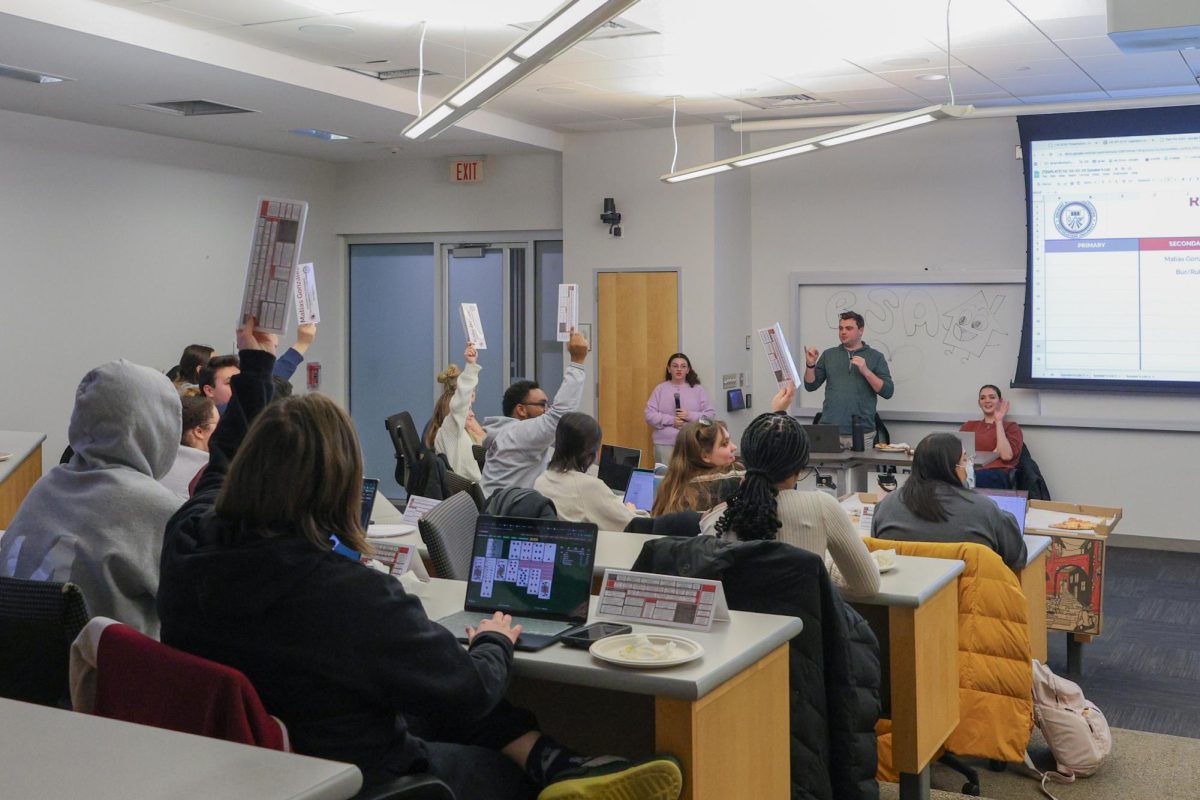Northeastern’s Resident Student Association, or RSA, unanimously voted to table legislation that would have added a question to the housing application form about allergies Jan. 15 after spirited deliberation.
Traditionally, Disability Access Services, or DAS, handles allergy accommodations, but the proposed legislation would shift some responsibility onto Housing and Residential Life. The legislation would consider students’ allergies when matching them with random roommates to reduce the risk of allergens in the shared space.
Members of RSA, a student-run Northeastern organization that advocates on behalf of campus residents to improve life in residence halls, also discussed potential improvements that the university could make to support students with allergies. These included creating a living learning community focused on students with allergies and increasing student access to kitchens while living in residence halls.
RSA said it plans to continue working on a modified version of the legislation in the future.
Taylor Levin, a first-year health science major and RSA representative, initially proposed the legislation. Although the vote to table the initiative was a setback, she was positive about the conversation that the bill inspired.
“It wasn’t what I expected, but the discussion we had was really good and it brought up a lot of points about how … some of the things that are supposed to be handled by certain departments aren’t being handled,” Levin said.
Despite the vote, RSA members expressed interest in favor of finding better ways to accommodate students with allergies. Finn Murphy is a first-year politics, philosophy, and economics major who has multiple allergies. During their first semester, Murphy had to move residence halls to get access to a kitchen due to cross-contamination at the dining halls. Murphy felt the language of the current draft of the legislation put too much of a burden on students with allergies.
“There’s a lot of weird dimensions allergies can have, so I feel like a better question to ask would be: Are you willing to respond to the sensitivities of other people?” Murphy said.
Fausta Fenner, a third-year computer engineering major and president of the RSA, welcomed discussion on the topic.
“I think it didn’t pass because people actually want to see things happen with it,” Fenner said. “This is the most people have actually discussed a piece of legislation. There is definitely a bigger conversation to be had and I’m glad people are willing to have it and workshop the piece.”
Kate Bevec, a third-year chemical engineering major and vice president of advocacy for the RSA, said delegating responsibilities between DAS and Housing and Residential Life would be difficult.
“The resources on campus of DAS are very separate from housing, so it is hard to pass legislation that tries to do both, and I think that was the issue we faced in trying to pass this legislation,” Bevec said.
Even with the debate over the bill, developments to make the experience of living with allergies at Northeastern safer and easier is still a priority among both the RSA and the students it affects, RSA members expressed. If the legislation passes, it would be up to Housing and Residential Life to decide whether or not to implement the change.
“I certainly know some people who [have a deadly] allergy and they do not care for it as much as they should, so having the option for people to say I want to live with someone who is okay with not eating peanuts is very helpful,” Murphy said.
News correspondent Antaine Anhalt contributed reporting.












